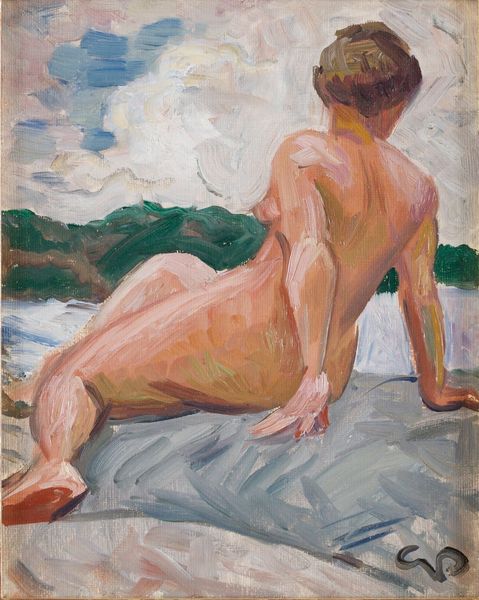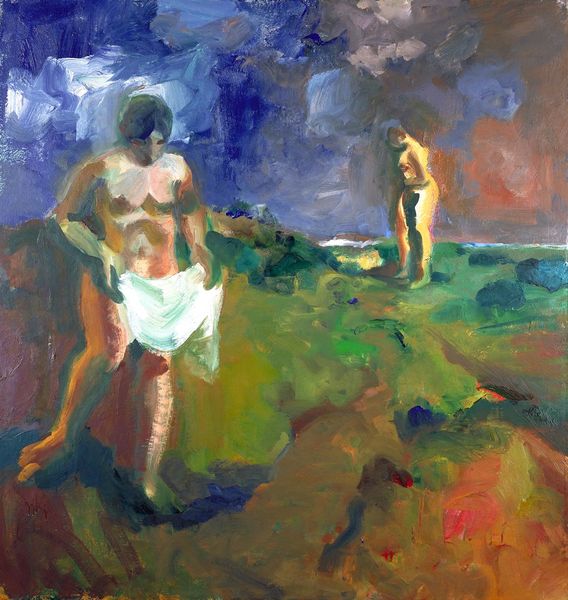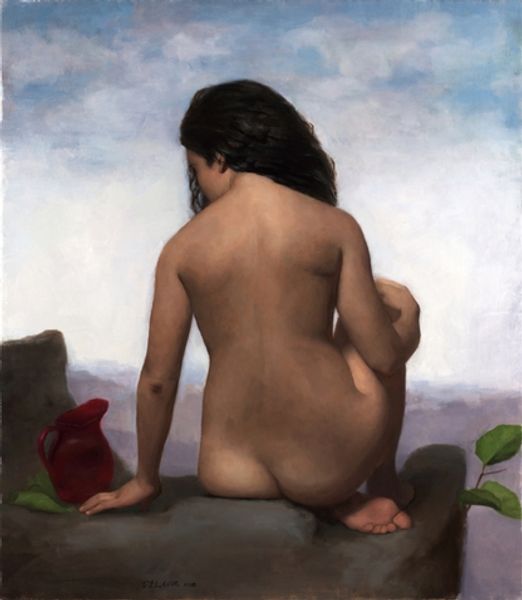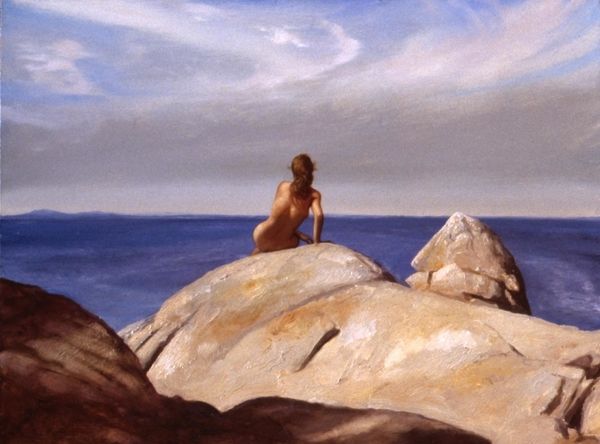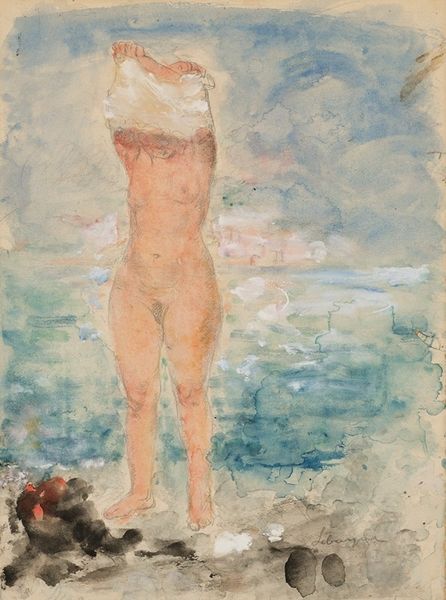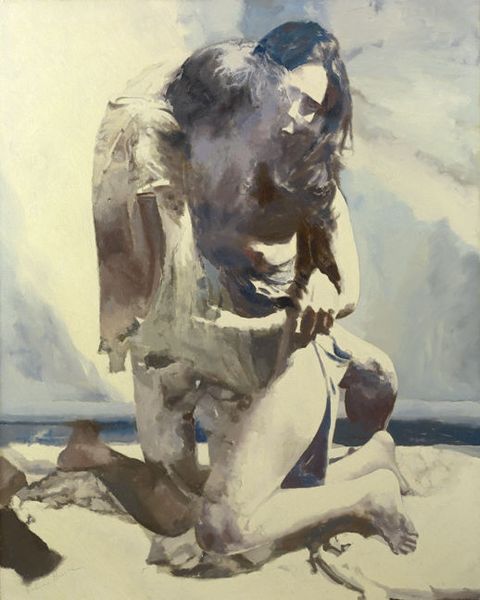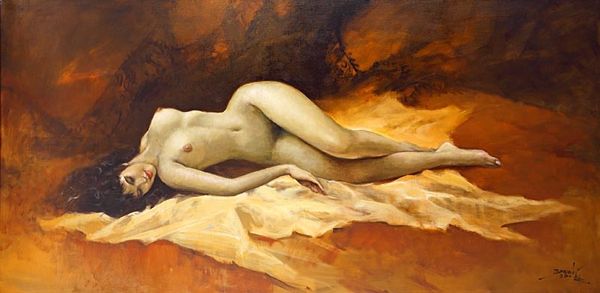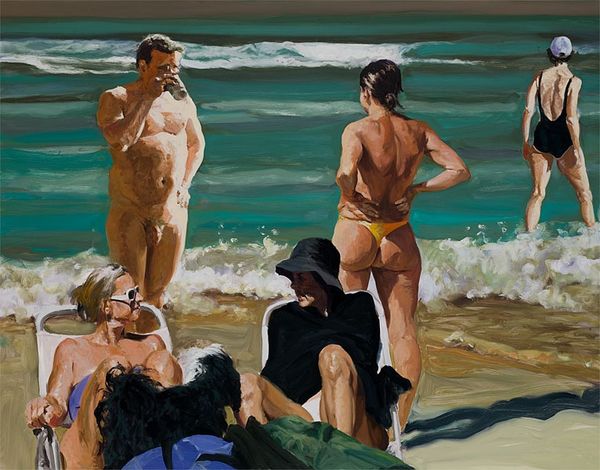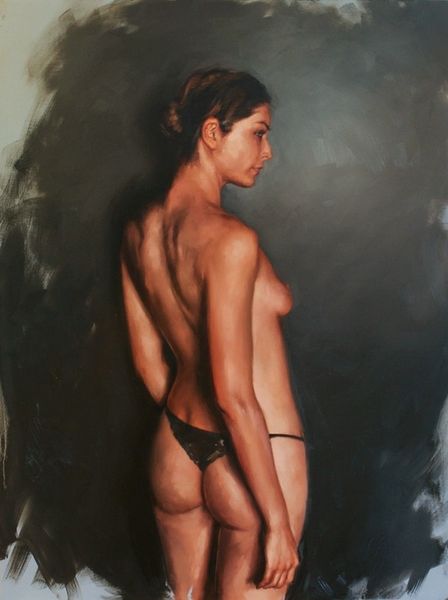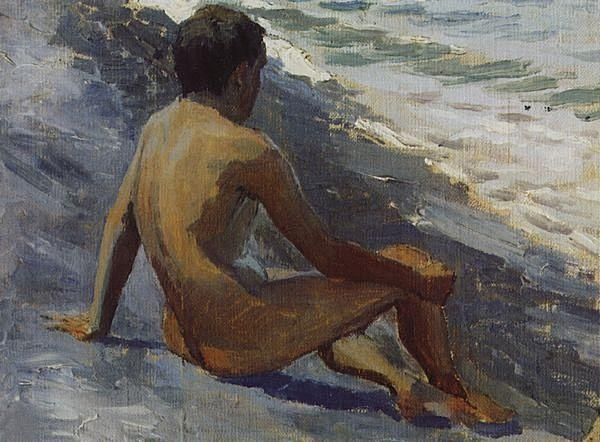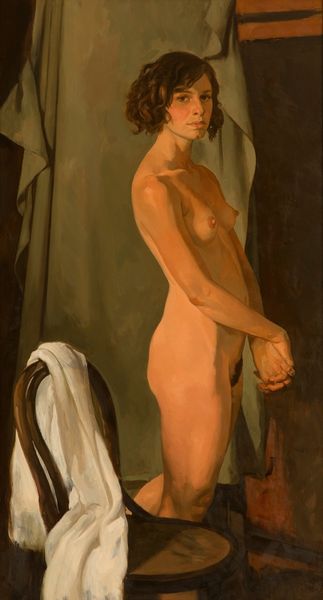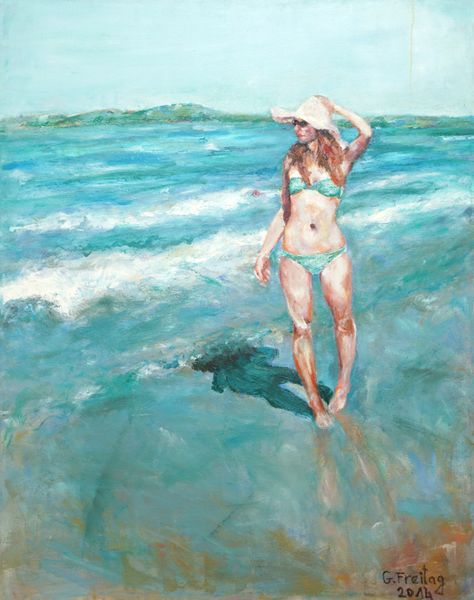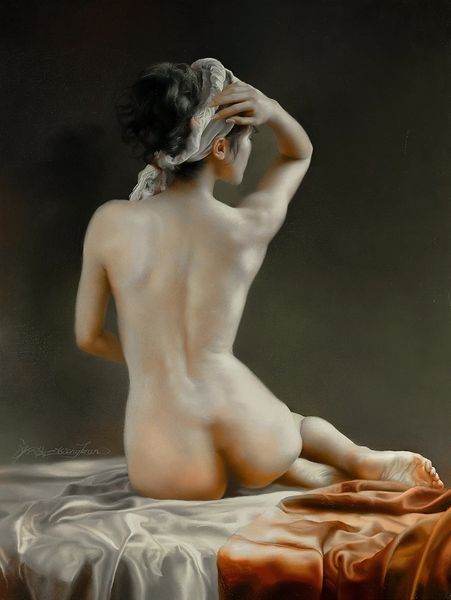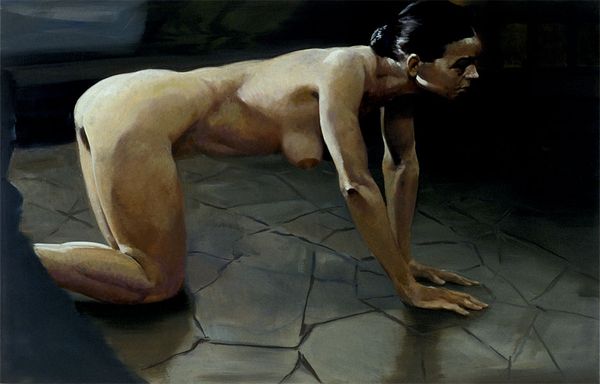
Copyright: Eric Fischl,Fair Use
Curator: Welcome. Before us is Eric Fischl's painting, "The Beginning of the End," completed in 1988. It's oil on canvas. Editor: My immediate reaction is… unease. The composition is so fragmented. We have these figures arranged in such a peculiar manner and the subdued palette only intensifies this strange mood. Curator: Indeed. Note the layering of figures—the standing nude facing away, the partially obscured figure to the left, the head resting to the right. Fischl masterfully orchestrates these forms across the canvas to disrupt traditional narrative structures. Editor: The beach setting and the bodies certainly evoke classical nudes, but they’re somehow… awkward. There's nothing idealized here. The man is cut-off, the nude seems isolated against that dramatic sky, and the slumped man is very distorted. Curator: Precisely! This is postmodern figuration at its finest, the body rendered with unflinching realism, rejecting established aesthetic codes. Also, consider that title. Given the socio-political backdrop of the late 1980s—AIDS, anxieties about social decline—how might it inform your reading of the piece? Editor: I see it. Beyond a simple nude study, it starts to speak to deeper societal anxieties. Are the disconnected body parts pointing to something fragmented about human interaction, or perhaps the inevitability of decay and mortality? Curator: Potentially. Fischl’s strategic use of disjunction invites contemplation about the instability of the human form and condition within a changing cultural landscape. Notice the underpainting. How would you describe the sky? Editor: The loose, visible brushstrokes almost feel like an expressionistic burst. Is that to be seen as an opposing reaction to realism? Curator: An apt observation. Fischl blurs the lines. He interweaves realistic rendering and abstract expression to enrich and problematize meaning. He’s pushing you to question your reading. Editor: This dialogue itself unveils how loaded a seemingly simple beach scene can become once one begins peeling back layers of history and scrutinizing form. Curator: It’s precisely Fischl’s brilliance to incite and complicate assumptions, transforming mundane interactions into sites for reflection on cultural uncertainty.
Comments
No comments
Be the first to comment and join the conversation on the ultimate creative platform.
